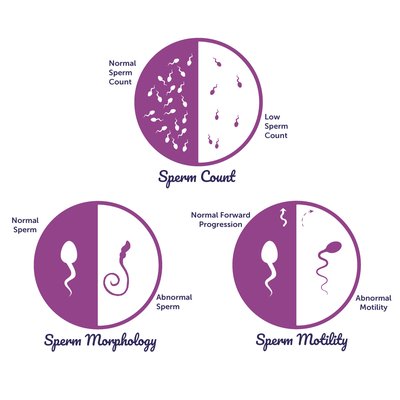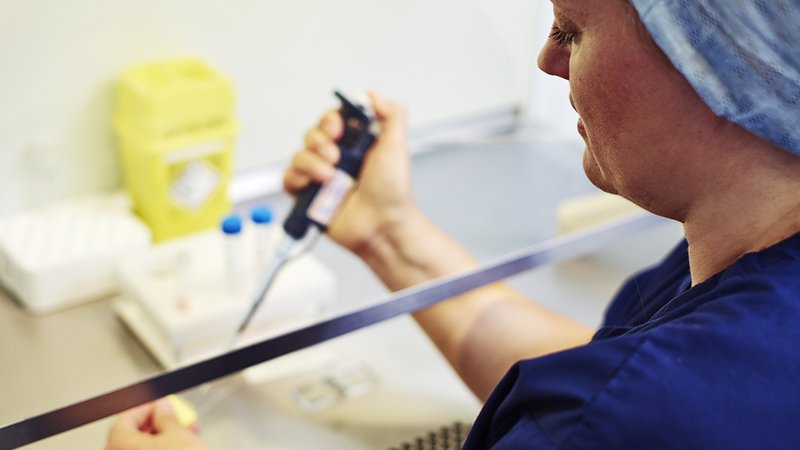How To Keep Your Sperm Healthy For Donation Visits?

This information was correct at the time of publishing. It may not reflect our current practices, prices or regulations.
In the UK there is a shortage of sperm donors as the current demand outweighs the number of men coming forward as donors. In short, many people need your help!
Semovo is one of the country’s leading sperm banks, with five donation clinics across the UK. We work with men from all walks of life who selflessly donate their sperm to help people who cannot have children naturally. By donating sperm, you could be helping a single woman without a partner, a heterosexual couple struggling to conceive due to male infertility, or a lesbian couple reliant on a sperm donor.
However, to give the best chance of success when used for fertility treatments such as IVF and IUI, donor sperm has to be high quality and healthy to be considered for donation. We determine sperm health through semen analysis, health checks, and screening.
Men between the ages of 18 and 45 years old, with no serious health problems, who can provide a full family medical history, can be considered for sperm donation.
How is sperm quality determined?
Sperm quality is determined based on three factors. The most common measurement for sperm quality is sperm count. Specifically, if there are 15 million sperm per millilitre of semen or over, this is considered healthy. Pregnancy is still possible with lesser amounts, but the chances are lower.
Sperm structure (morphology), is also a consideration. No doubt you have seen images or graphics of sperm with a rounded oval head and long tail. This structure enables smooth swimming to the eggs for fertilisation and is considered healthy. The occasional abnormality is no problem, but if the majority are out of shape this may prevent fertilisation.
However, it is not all about shape and size though, motion is just as important. Sperm motility is how well sperm moves towards the egg. A rapid wiggle from side to side is what we’re looking for, as without this, the distance through the cervix and uterus to the fallopian tubes may be unreachable. A reasonable number of sperm need to be motile.
Now that you know how precious sperm is and what we’re looking for, here’s how to take care of it!
What can donors do to ensure the best quality sperm?
There are many simple lifestyle considerations you can make to ensure the best sperm quality possible.
Maintain a healthy weight: Having a healthy BMI is a big factor in your fertility. If you are overweight or underweight you are more likely to have poorer quality and a reduced number of sperm.
A healthy diet: Pack plenty of omega-3, antioxidants, vitamins and minerals into your diet and avoid a high intake of red meat, processed meat and caffeine. These have been found to negatively affect sperm in some studies.
Keep fit and active: Moving more will help to maintain a healthy BMI and goes hand in hand with a healthy diet. Men who exercise at a moderate to vigorous rate have a higher sperm count than those who don’t.
Reduce alcohol: Alcohol affects sperm too, so don’t excessively drink.
Quit smoking: Smoking can increase DNA damage in sperm and lower sperm concentration and mobility.
Quit drugs: Recreational and performance-enhancing drugs will affect your sperm. In particular performance-enhancing drugs, because of how the drugs may affect the hormones that control sperm production.
Keep cool: Sperm doesn’t like heat, so keep cool where it counts. Avoid hot saunas, hot baths, tight underwear, and continuous use of your laptop on your lap.
Reduce stress and sleep more: Severe stress may affect sperm production, so find ways to reduce your stress levels and switch off. Get plenty of sleep too, as sleep helps to moderate hormone levels.
How long will it take to see an improvement?
Generally, your sperm health should improve within three months, but it all depends on how many adaptations you make and how committed you are to maintaining this healthier lifestyle. So, if you want to start donating, the sooner you make these changes, the better.
What’s the compensation per donation?
You’ll be fully supported by our caring and experienced team every step of the way and receive £45 compensation every time you donate for your time and expenses.
What to do (and not to do) before your donation visit
Before you visit us for your donation, we require a certain amount of abstinence, usually between 3 to 5 days. This is very important; otherwise, the samples may not be good enough to use
What happens after your donation cycle?
After donation, your sperm is quality checked, frozen in liquid nitrogen, and stored in our cryobank until you have completed the required screening. As a donor, you’ll be anonymous to the recipient, but a donor-conceived child has the right to find out the identity of the sperm donor. They can do this through the fertility regulator HFEA once they reach 18 years of age. Donors have the right to find out the number of children conceived from their donations, their sex and year of birth.
Start the process: Give the gift of life!
If you are between the ages of 18 and 45 years old, with no serious health problems and can commit to regular donations, please start the process and apply online today! Alternatively, please contact our friendly Semovo team to find out more on 0345 266 1272. You can also read more about the sperm donation process and find answers to common FAQs.
More from the blog

6th May 2025
Semen Analysis Understanding Your Results
A Semen analysis is an important test that tells us if you have the high quality of sperm that’s needed for sperm donation.



